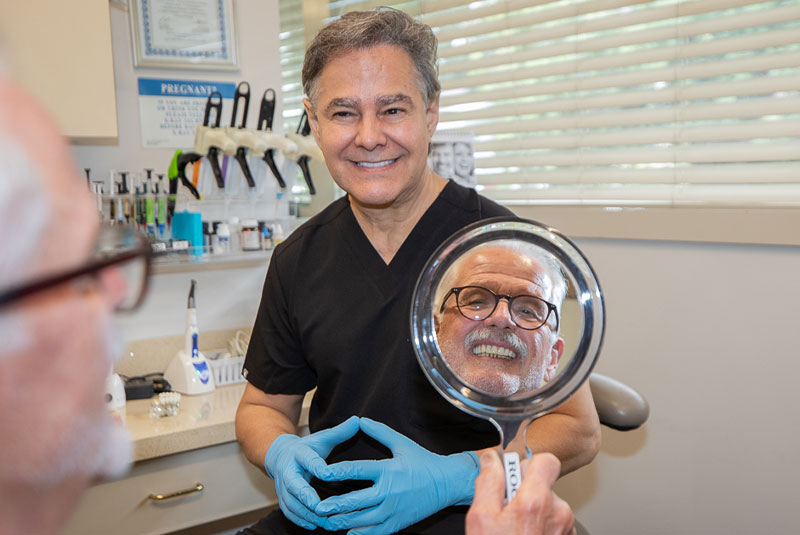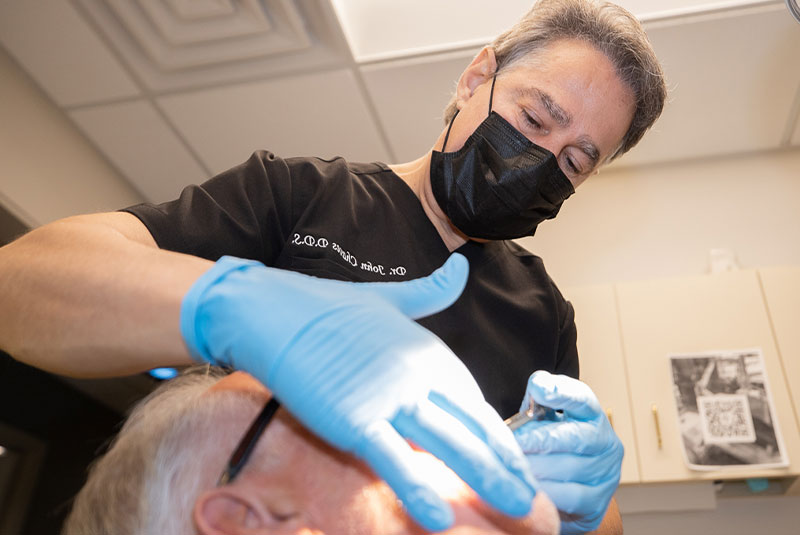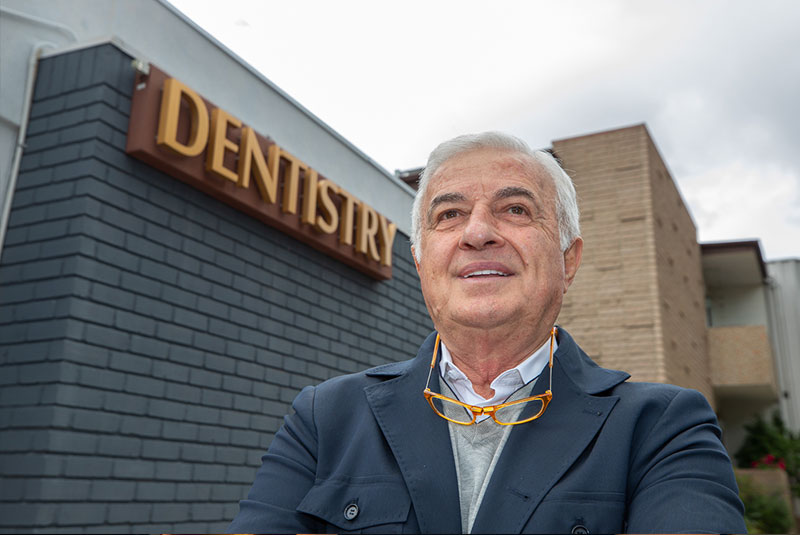

When it comes to restoring your smile and oral functionality by replacing missing teeth, false teeth such as dentures are a popular option. However, understanding the costs involved is crucial for making an informed decision.
At John M. Chaves, DDS, our Woodland Hills dentist and team are committed to bringing awareness to the cost of dentures to help guide our patients in making an informed decision. Contact Dr. Chaves today by calling 818-491-7294 so you can discuss options to replace missing teeth and create a plan suited to meet your smile goals.
At John M. Chaves, DDS we offer high-quality, yet affordable denture solutions and are in network with many leading insurance companies.
Complete conventional dentures may range from $600 to $1,500 per arch, while premium dentures can cost between $2,000 to $4,000 per arch. The cost of full or partial dentures will vary depending on the type chosen, with full dentures generally being more expensive than partial dentures. The denture’s cost will vary based on factors like materials, quality, additional procedures, and more.


The cost of dentures can vary significantly based on a range of factors. Those factors can include:

When it comes to replacing missing teeth, there are several types of dentures available, each designed to meet different needs and preferences. Understanding the options can help you choose the best solution for your oral health.
Are you wondering if your dental insurance covers dentures? In most instances, dental insurance plans cover at least a portion of denture costs. Your dental insurance works based on the following:
If insurance doesn’t cover the full cost, financing options are available. You may consider looking into the following options:

When planning for dentures, it’s important to consider several additional costs that may arise beyond the initial price of the dentures themselves.
The lifespan of dentures can vary based on the type of denture, the materials used, and how well they are maintained. Here’s a general guide to how long you can expect different types of dentures to last:
To ensure your dentures last as long as possible, regular maintenance and care are essential. This includes daily cleaning, routine dental check-ups, and timely adjustments as needed. Proper care not only extends the life of your dentures but also ensures your oral health remains in top condition.
There are a few ways to save money on dentures:
The extent to which insurance covers the cost of dentures varies depending on the insurance plan. Some plans may cover a portion of the cost, while others may not cover it at all. It’s important to check with your insurance company to see if they cover the denture’s cost.
Understanding your dentures’ cost empowers you to make a decision that aligns with your oral health needs and budget. Whether you opt for basic dentures, premium options, or explore alternatives, seeking professional advice is crucial.
Schedule a consultation today by giving our Woodland Hills dental practice a call at 818-491-7294.
I understand the information disclosed in this form may be subject to re-disclosure and may no longer be protected by HIPAA privacy regulations and the HITECH Act.
